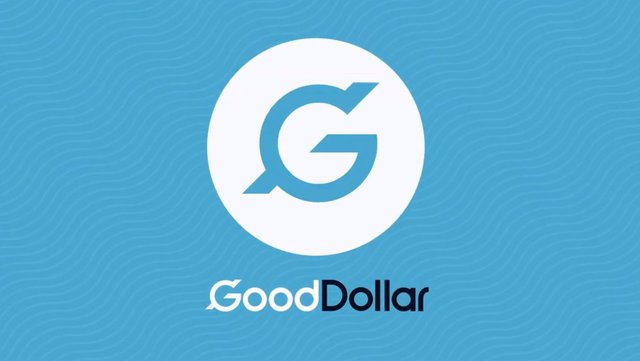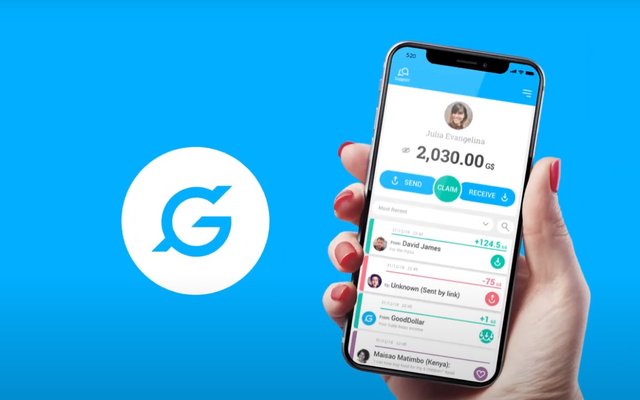
GoodDollar is a digital coin and wallet that helps you to earn FREE basic income with actual financial worth directly on your phone!
Basic income is a long-standing concept of offering everybody a monthly cash allowance. Today, utilizing modern financial technologies, GoodDollar is developing a reliable cash flow that allows every living person to earn and maintain a meager, regular G$ coin income.
No legislatures, no gimmicks, no more uncertainty.
Basic Income Model for Feeding millions and millions of people
GoodDollar provides an ongoing cash supply of basic income that is provided to users. They use innovative financial methods to balance benefits for those with capital and those in need and generate further prosperity and resources for both.
Characteristics of the Basic Income Definition
✩ Periodic: a recurrent payout (e.g. per week) rather than a one-off award
✩ Cash: is charged in (digital) dollars, enabling beneficiaries to turn their rewards to anything they want.
✩ Universal: it is paid to everyone, not to a particular population.
✩ Unconditional: it does not entail a prerequisite for employment or sanctions; it is open to staff at work and out of work, whether willingly or not.
Basic Income helps to address
Unpaid Care Employment: economic benefit for the unpaid "care market," for positions such as nursing, elder care, or voluntary work
Financial Security: Helps to prevent homelessness, hunger, and desperation as a consequence of unforeseen emergencies, such as a health epidemic or a global pandemic.
Economic mobility: instead of scrapping, basic income allows individuals to start saving and spending.
Mental & Emotional Well-being: released from the pressure of chronic uncertainty, pilots show greater happiness and enhanced mental wellbeing results.
Professional development: offers individuals the floor to get up and frees them from unfulfilled work, allowing them to seek different knowledge and schooling.
The Gooddollar Foundation
GoodDollar is an eToro-sponsored non-profit organization that seeks to build a viable and scalable system to introduce global universal income to the planet through emerging digital asset technology.
Our goal is to utilize emerging digital asset technology to enhance financial literacy and financial access by developing goods that are inclusive of design.
The Foundation Goals
✶ Improving financial literacy around
✶ Digital Property
✶ Release of records, case studies, and analysis that advance universal income
✶ Promote exposure to virtual currencies;
✶ Provide mechanisms and tools for the allocation of basic income
✶ Develop easy goods to promote
✶ Integrated adoption of emerging properties
✶ Establish an ecosystem of individuals and organizations who advocate viable, flexible basic income frameworks
Progress of Gooddollar
Within three days of the introduction of GoodDollar's basic income, almost 3,000 new accounts were opened on 7 September, with Applicants reported from all around the world – from Australia, Austria, Albania, and Argentina, and – and more than 80 countries beginning with other keys in between. Although it's been fun for the team to see the enthusiasm so many stakeholders have for the idea, it's obvious that some people want to grasp the money flow of GoodDollar more.

What's Basic Income and how am I going to receive it?
Basic income is the concept of direct distribution of periodic cash to individuals. In certain situations, policymakers propose providing a basic income to residents of a nation. GoodDollar follows a particular strategy that offers a certain G$ sales pool that is fairly allocated to all consumers. New G$'s are published on a regular basis, and users demand their G$ per 24 hours. All you need to do is sign-up and build an account to earn a modest regular minimum income in G$.
What Blockchain is to be used?
In the case of GoodDollar, the difficulty was to find a technological architecture capable of handling high-volume, high-frequency transactions with a functioning cost structure, while still having links to liquidity, fiat on/off ramps, security trust, and service providers that evolved alongside Ethereum. There are many alternatives for Ethereum side-chains, of which Fuse Network and POA Network are some of the most well-known. But which blockchain is to be used?
In deciding which side-chain to create atop, the preference of GoodDollar for Fuse was obvious because of the mutual goal of Fuse and GoodDollar to produce goods that cater to mass-market, non-technical consumers. For onboard mass consumers, we need to be able to have a clear user interface that does not suffer from the same usability challenges that characterize the interface of most crypto applications: the need to pay for petrol, grasp authentication times, public addresses, and safely manage private keys.
Offering a decentralized basic income architecture is crucial to our task and, until quite recently, imagining such a structure would have been unthinkable (unless, of course, we wanted to return to a centralized user-wallet system and sacrifice the non-custodial existence of crypto).
Okay, have you just signed up to earn basic regular income? It's a good one. This is how to use the Good Dollar Coins
One of the most often asked questions for every new currency – and definitely every new crypto asset – is, "How and when do I use it? ”. Far too much you can get a cryptic response about how "one day in the future" the digital currency would be "widely embraced and used much like a credit card or PayPal" to "pay for rent, electricity, shopping" and so on. We shouldn't have to do so, but here's an example of how to use GoodDollar (G$) coins.
G$ As a supplementary currency
We see it a little differently at GoodDollar. G$ is intended to serve as a supplementary currency (i.e., G$ in addition to national fiat currencies) to promote and facilitate economic development. Why is that? Ok, let's dig in here.
The truth is so plenty of us feel like we don't have enough resources to do or to do anything we want to do. This is because much, if not all, of our money, is allocated to compensate for the costs that are important to fulfilling our fundamental needs: accommodation, food, water, health care, schooling, and so on.
These requisite outputs leave many of us with few to no money left to spend on "luxury products" such as movies, non-essential commodities/services, art, career advancement, and so on. It's not because we don't want to get a nanny out of town for a night or buy a rare piece of digital art – we just don't have enough dollars/€/rand / name-your-fiat-currency to get around. If this is so for you, the chances are that you're not alone — many of your peers, neighbors, schoolmates, bosses, and family and friends are likely to believe the same.
G$ for Your Community
So, back to you, the community, and how you're going to use G$. G$ is a currency that goes straight into the hands of individuals (no banks or other structures regulating middlemen). It is meant to drive economic development in a bottom-up manner: citizens use G$ to expand their peer-to-peer exchange and economic activity, thereby resulting in further exchange and cooperation that does not depend on a small supply of valuable fiat currency. That's why we're referring to GoodDollar as a "trick-up market."
The use of G$ in the peer-to-peer marketplace was piloted in a private trial with 500 eToro workers in Israel at the turn of the year. The beta started by encouraging eToro employees to log in and demand a G$ prototype; once enough employees had obtained enough G$ prototype, they used their G$ to swap peer-to-peer and standardize the barter. People used G$ to purchase and sell baked wedding cakes, greenhouse plants, iPhones, tutoring, babysitting, fitness lessons, spa sessions, and more – many tens of thousands of new business dollars.
To use G$ in this manner, it's necessary that others in your group also carry G$. If the people you communicate with (geographically in real life or digitally) either possess G$, so you may use G$ with each other to purchase products and services from each other or to standardize the barter you might already have. So, in these early days of our economy, the easiest way to make GoodDollar valuable to you directly is to raise the number of people in your society carrying G$.
Of course, as a protocol, we're working to extend the functionality and resources that let you use G$ as an exchange and barter coin and, just as importantly, find main vendors and sellers who will accept G$ to pay for cell phone minutes, customer health products, and more.
Why do you use G$ to broaden the community's economic activity? We would love to hear from you.
For More Details
https://www.gooddollar.org/Article by Anton De Mel
ETH Address: 0xD0B74BAE747a7756644B1f453577449055693A6c
Hello @foxicoreviews
Thank you for posting within our community.
Please spare few minutes and read how project.hope is organized and learn about our economy.
That would help you understand more our goals and how are we trying to achieve them. Hopefully you will join our community and become strong part of it :)
Do you use telegram or discord? If you do then join our server and give me a shout. I would gladly share with you goals of our community and introduce to others from our team.
Consider joining our discord server: https://discord.gg/uWMJTaW
Yours,
@project.hope team,
Downvoting a post can decrease pending rewards and make it less visible. Common reasons:
Submit